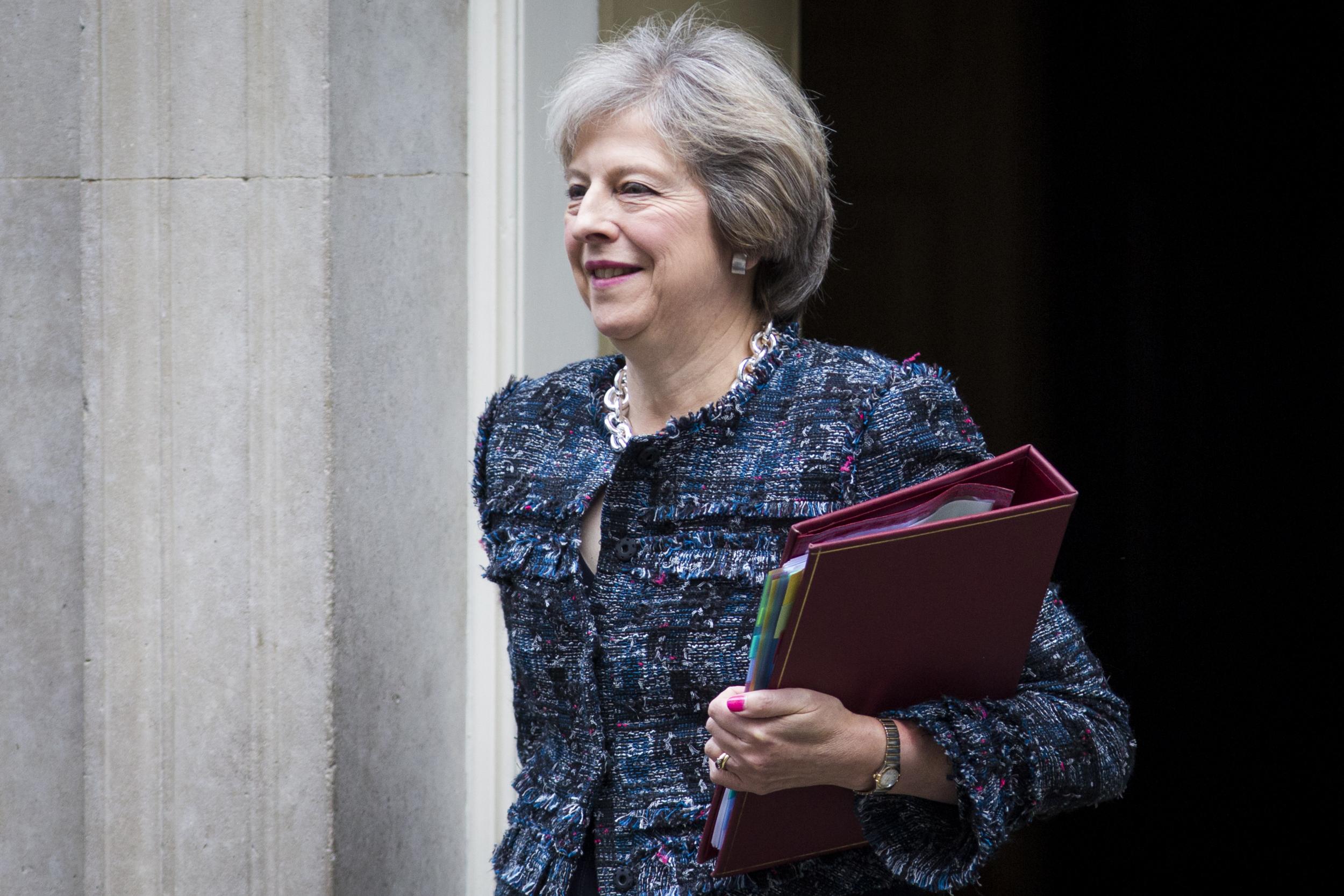Your support helps us to tell the story
From reproductive rights to climate change to Big Tech, The Independent is on the ground when the story is developing. Whether it's investigating the financials of Elon Musk's pro-Trump PAC or producing our latest documentary, 'The A Word', which shines a light on the American women fighting for reproductive rights, we know how important it is to parse out the facts from the messaging.
At such a critical moment in US history, we need reporters on the ground. Your donation allows us to keep sending journalists to speak to both sides of the story.
The Independent is trusted by Americans across the entire political spectrum. And unlike many other quality news outlets, we choose not to lock Americans out of our reporting and analysis with paywalls. We believe quality journalism should be available to everyone, paid for by those who can afford it.
Your support makes all the difference.Theresa May faces calls to reveal details of her investments after it emerged she has shares held in a ‘blind trust’.
Ms May set up the trust when she became Prime Minister, despite previously serving in the Cabinet for six years as Home Secretary.
Downing Street has insisted she used what is a “well-established mechanism” when she set up the trust to manage her financial interests on becoming Prime Minister.
But political opponents have demanded she release details of the shares held in the trust, recently revealed in the Cabinet Office list of ministers’ interests.
Liberal Democrat Leader Tim Farron said: “I’m sure the Prime Minister has nothing to hide but the public has a legitimate interest in what companies she invested in and who runs the trust.
“Theresa May promised the most transparent government in the world. This is an early test to see if her deeds match her words.”
Shadow minister without portfolio Andrew Gwynne said: “If the Prime Minister has nothing to hide then she needs to reveal immediately where she has existing financial interests.”
The placing of shares in a blind trust means ministers have no knowledge of how their interests are being invested, to avoid accusations that their decision-making is unduly influenced.
But while ministers use the trusts to avoid conflicts of interest, it also means they do not have to reveal their investments in full in the list of ministerial interests. Six serving members of the Government currently hold blind trusts.
A Number 10 spokeswoman said: “Blind trusts are a well-established mechanism for protecting ministers in the handling of their interests, as they are not involved in any decisions on the management, acquisition or disposal of items in the trust. She set it up when she became Prime Minister.”
The spokeswoman also said the PM did not require a blind trust while Home Secretary, adding: “The Prime Minister has a far wider set of public duties than the Home Secretary.
“Accordingly, the blind trust was established when she became Prime Minister.”
The arrangement has proved controversial in the past, with Tony Blair attracting criticism while PM in 2002 when it emerged his wife Cherie had used money from his blind trust to buy two flats in Bristol.
On coming to power in 2007, Labour Prime Minister Gordon Brown amended the ministerial code to remove a warning about the use of the arm’s-length trusts.
An earlier version of the code, which sets out guidance on ethics and procedure, said ministers may want to place investments in an externally managed blind trust, to avoid any appearance of conflict of interest.
But it added: “It should also be remembered that even with a trust the minister could be assumed to know the contents of the portfolio for at least a period after its creation, so the protection a trust offers against conflict of interest is not complete.”

Join our commenting forum
Join thought-provoking conversations, follow other Independent readers and see their replies
Comments